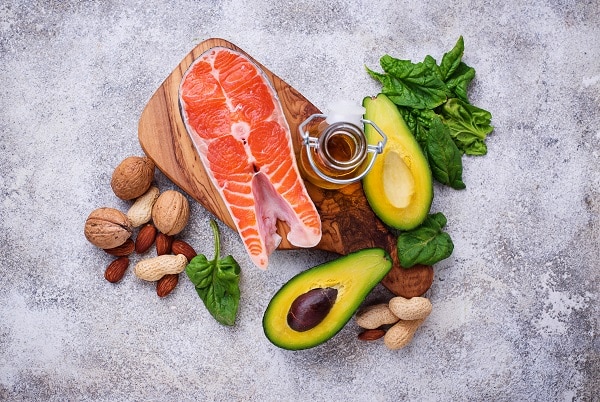To lose weight, you need to exercise and cut back on calorie intake, but as the world knows, exercising and a weight loss diet always leads to an increased appetite, so what do you do? Well, you learn to eat smart; with the proper diet and strategy, one can control their Appetite, making your weight loss journey a bit smoother.
Contents
18 Science-Based tips to Reduce Appetite
Eat More Protein

When we work out, we burn calories, which helps us lose weight, but exercise and training also lead to hunger, and most times, people end up consuming more calories through their after-workout meal than the ones burnt, which leads to zero results. The trick here isn’t to eat less but to eat smart. There are food items that make you feel full and keep the calorie count down. Eating protein is not only healthy for the body but also keeps you full and satisfied for a longer period, making you eat less at your next meal. For instance, a boiled egg makes you fuller than a bagel because eggs are protein and keep you energized and full for a long time, whereas bagels do not provide fullness.
Focus On What You Eat

It is important to focus on your food while eating. Most people eat their food while watching a T.V. show or while staring at their phones. Avoid this habit as it becomes difficult for your brain to register the signals. Studies show that being mindful while eating is important as your brain needs to register your food. Eating quickly or mindlessly will only make you want to eat more. Research shows a direct link between hunger, fullness, and what your eyes register. Two participants were given a milkshake in a study; one was labeled “620-calorie indulgent,” and the other milkshake was labeled “120-calorie sensible”. Despite the labels on the milkshake, both milkshakes contained equal calories. The participant who drank the “indulgent” showed a drop in the hunger hormone levels. Believing that the drink has more calories makes the brain feel full. However, both drinks contained similar calories. Paying attention to the food you eat is quite beneficial.
Eat Dark Chocolate

Studies show that eating dark chocolate has a ton of benefits for those who wish to lose weight. The stearic acid present in dark chocolate slows down digestion which keeps you full for long. Additionally, even the simple act of smelling dark chocolate can diminish Appetite and reduce cravings. So, whether you eat it or smell it, dark chocolate has similar effects and dramatically reduces one’s Appetite.
Eat Some Ginger

Ginger is a common spice found in most kitchens and is widely used for its health benefits. Ginger helps in reducing blood sugar levels, nausea, and muscle pain. Ginger also aids in reducing Appetite and controlling cravings. A study shows that regular consumption of 2 grams of ginger powder mixed with lukewarm water before breakfast reduces the cravings and Appetite after a meal. However, a more detailed study is required to cement these claims conclusively.
Use A Bigger Fork

A bigger fork can also affect your calorie intake, continuing with the connection between hunger, brain signals, and visuals. Numerous studies have been conducted to understand the effects that eating utensils have on a person’s diet. For example, one study concluded that subjects who used smaller forks ate 10% more than those using a more oversized fork.
Smaller forks give a less satisfying feeling to the eater; it makes the eater feel as if they are not making much progress with their food and hence are unable to satiate their hunger, making them reach out for bigger bites. However, this rule does not apply to all utensils. For instance, using larger serving spoons can lead to an increase in food consumption by 14.5%.
Aim For Better Sleep

Research shows that a better sleep pattern and quality may reduce Appetite and protect against weight gain. Studies have proven that less sleep increases a person’s Appetite and hunger by 24% and reduces the levels of a fullness hormone by 25%. It is also worth noting that many studies conclude that short sleep, that is, six hours or less sleep pre-night, leads to a 55% higher risk of obesity.
Eat Omega-3 Fats

Omega-3 fatty acids are essential fat that has many health benefits and are particularly good for brain health. According to scientific research, omega-3 acids help tackle anxiety, depression, aids in building brain cells, and so much more. Apart from all the other benefits, omega-3 fats can also increase leptin levels in the body, a fullness hormone. An omega-3 acid-rich diet can also result in fullness post meals keeping the calorie count down.
Avoid Stress

Stress is another factor that adds to a person’s weight. Stress-eating is a real problem and can lead to excessive eating. Plus, excess stress leads to the increased release of the hormone cortisol. Cortisol is a hormone that serves as an alarm in the body; it elevates the body’s heart rate, taps into the body’s energy supply, and elevates blood pressure. Once a person experiences excessive stress, the body releases high cortisol levels, which consume the body’s energy reserve, leads to hunger, and raises Appetite to restore the body’s energy reserve. Stress also decreases peptide Y.Y. (PYY), a fullness hormone, and leads to an increased risk of obesity and depression.
In conclusion
There you have it eight science-based facts that help in decreasing Appetite and curbing hunger. Weight loss is a demanding journey and diet food fails to provide the fullness one requires to avoid excess eating or snacking. Therefore, eating smart and following the tips above is important to avoid eating excessively and increasing calorie consumption.


